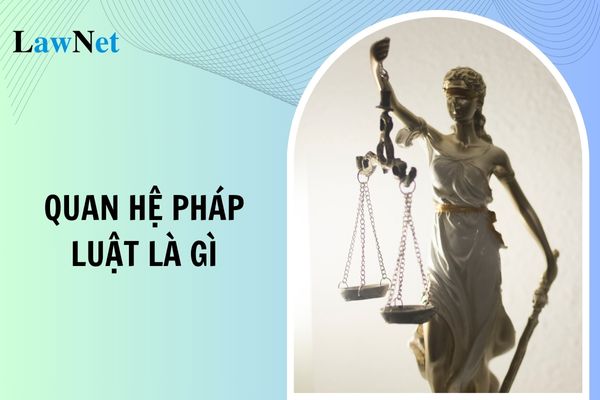What is a legal relationship according to the law in Vietnam? What are characteristics of legal relationships in Vietnam? What are current principles of legal education in Vietnam?
What is a legal relationship in Vietnam? What are characteristics of legal relationships in Vietnam?
Currently, there are no legal regulations that define what a legal relationship is. However, a legal relationship is a social relationship regulated by legal norms, in which the participating parties meet the conditions specified by the state and have certain rights and obligations as per the legal provisions.
There are four characteristics of a legal relationship, which include:
- A legal relationship is a social relationship regulated by legal norms.
- A legal relationship has a voluntary nature.
- A legal relationship has a high degree of specificity.
- A legal relationship is one in which the participating parties have legal rights and obligations guaranteed by the state.
The subjects of a legal relationship are individuals or organizations that meet the conditions specified by the state for each type of legal relationship and participate in that legal relationship. The capacity of the subjects of legal relationships is as follows:
- Legal capacity: the ability to enjoy rights and perform obligations as per the legal provisions.
- Capacity for acts: the ability of an individual or organization recognized by the state, through behavior, to establish and perform legal rights and obligations, as well as independently bear responsibility for their actions.
The object of a legal relationship is the benefits that the parties involved in the legal relationship aim to achieve when participating in the legal relationship. The object is the factor that motivates the subjects to participate in the legal relationship.

What is a legal relationship according to the law in Vietnam? What are characteristics of legal relationships in Vietnam? What are current principles of legal education in Vietnam? (Image from the Internet)
What are current principles of legal education in Vietnam?
Based on Article 5 of the Law on Legal Dissemination and Education 2012, there are five principles of legal education as follows:
- Accurate, comprehensive, clear, easy to understand, and practical.
- Timely, regular, focused, and targeted.
- Diverse forms of legal dissemination and education, suitable to the needs, ages, and educational levels of the recipients, and in harmony with the traditions, customs, and good practices of the nation.
- Linked to the implementation of laws, the execution of economic and social development tasks, ensuring national defense and security of the country, the locality, and the daily life of people.
- Close coordination between agencies, organizations, families, and society.
What are requirements for legal education content in educational institutions in Vietnam?
Based on Article 23 of the Law on Legal Dissemination and Education 2012, the legal education content in educational institutions of the national education system is regulated as follows:
Legal education content in educational institutions of the national education system
- Legal education content in educational institutions of the national education system shall be constructed to match each educational level and training stage, suitable to educational objectives and vocational training, ensuring consistency, uniformity, popularity, fundamental, practicality, and systematic nature.
- Legal education content for each educational level and training stage of the national education system is prescribed as follows:
a) Legal education content in pre-school and primary education programs is integrated through moral education content, forming habits in accordance with social moral standards, discipline awareness, solidarity spirit, self-discipline, creating a basis for forming legal consciousness;
b) Legal education content in lower and upper secondary education programs equips students with initial knowledge about citizens' rights and obligations, trains habits, awareness of respect and compliance with the law;
c) Legal education content in vocational education and higher education programs equips students with fundamental knowledge about the state and law, legal knowledge related to the occupational training.
Thus, the legal education content in educational institutions must be constructed to match each educational level and training stage, suitable to educational objectives, vocational training, ensuring consistency, uniformity, popularity, fundamental, practicality, and systematic nature.

